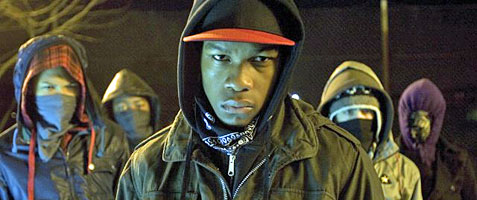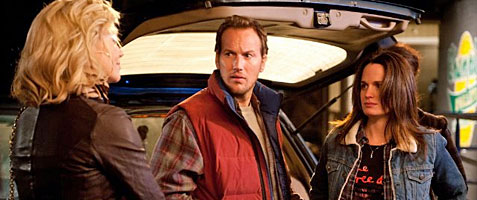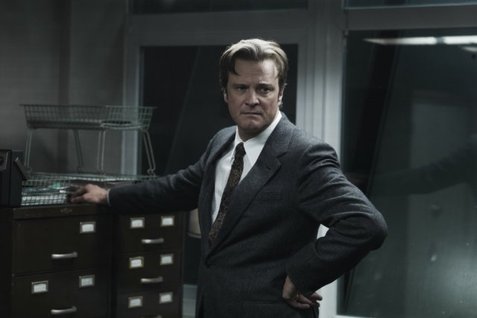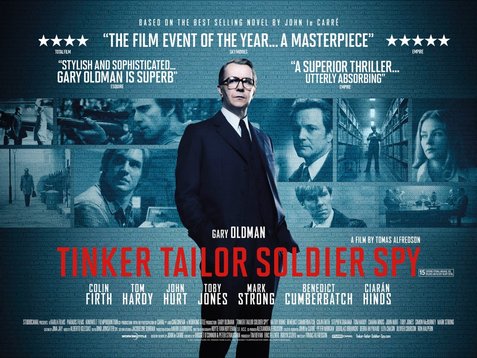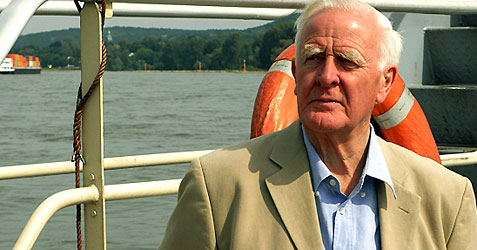Blu Tuesday: Teenage Violence, Muppets and More
First things first: I was in Austin last week for the SXSW film festival and was unable to put together a column in advance of my trip. But there were so many great Blu-rays released that it didn’t feel right to completely ignore them, so be sure to check out “The Descendants,” “Young Adult,” and if you’re a fan of Steven Spielberg, “The Adventures of Tintin” if you haven’t already. With that said, however, this week’s offerings are even better, including several Oscar nominees and one of the coolest cult films ever made.
If you’ve never seen Kinji Fukasaku’s Japanese cult hit “Battle Royale,” then it’s something you should remedy as soon as possible, preferably before heading to theaters this weekend to check out “The Hunger Games.” Originally deemed too controversial to be released in the U.S. (partially due to the Columbine killings that occurred the same year), the movie is finally getting an official Blu-ray release through Anchor Bay in a blatant attempt at cashing in on the “Hunger Games” media frenzy. And why not? Suzanne Collins’ bestselling trilogy may not be a total rip-off, but there are still a number of similarities that can’t be ignored. Though the books aren’t nearly as brutal in their depiction of violence as it is in Fukasaku’s movie, that’s what makes “Battle Royale” so effective. It’s more twisted, more exploitative and much bloodier, but it’s also a great commentary on how desensitized society has become to violence. Plus, it features one of the most entertaining Beat Takishi roles of his career, and that alone makes it worth watching.
Blu-ray Highlight: Although all of the extras are incredibly dated (ported over from the numerous DVD editions), they’re still worth flipping through if you haven’t seen them before. The real highlight, though, is the four-disc box set itself, which includes two versions of “Battle Royale” (the theatrical cut and a director’s cut with additional scenes that were filmed after the movie’s initial release), a copy of the subpar sequel, and an entire disc of bonus material (albeit on DVD). Additionally, it comes housed in some killer packaging that resembles a hardcover book. In other words, it was worth the wait.
It’s hard to believe that it took this long for Kermit the Frog and Co. to make their return to the big screen, because although the Muppets property had been clearly suffering creatively by the time “Muppets from Space” was released, all it needed was someone from the outside to remind everyone why they fell in love with these characters in the first place. Kudos to Disney, then, for having the prudence to hire Jason Segel and Nicholas Stoller to write a movie that would introduce The Muppets to a whole other generation of fans while still preserving what makes them so timeless. The movie has just about everything you could want, including jokes that appeal to both kids and adults, some fantastic original music (courtesy of Flight of the Conchords member Bret McKenzie), and a brand new Muppet that fits right in with the rest of the colorful cast. The human cast isn’t too shabby either, but it’s called “The Muppets” for a reason: they’re the real stars, and let’s hope no one forgets it this time around.
Blu-ray Highlight: There are a number of great extras to choose from (including one of the funnier blooper reels and a cool feature called Disney Intermission where the Muppets perform short gags and tease other bonus material whenever you pause the movie), but the commentary with director James Bobin and co-writers Jason Segel and Nicholas Stoller is too much fun to ignore. Though they stray off topic a little too often, it’s a thoroughly entertaining commentary track that adult Muppet fans will really enjoy.
You can follow us on Twitter and Facebook for content updates. Also, sign up for our email list for weekly updates and check us out on Google+ as well.


